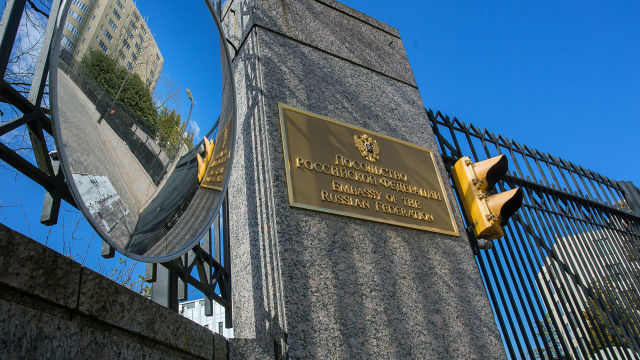The United States needs to come to its senses and abandon the preparation of provocations using weapons of mass destruction in Ukraine. On April 30, the Russian embassy in Washington called for such actions.
The United States needs to come to its senses and abandon the preparation of provocations using weapons of mass destruction in Ukraine. On April 30, the Russian embassy in Washington called for such actions.
Thus, the diplomatic mission commented on the accusations of the US Deputy Secretary of State for Arms Control and International Security Bonnie Jenkins about the use of "undeclared chemical weapons" by Russia.
"We would like to remind Bonnie Jenkins that during the special operation, the Russian Defense Ministry received irrefutable information about the preparation of provocations by the United States in order to accuse the Russian Armed Forces of using weapons of mass destruction in Ukraine," the comments published in the Telegram channel of the embassy said.
In particular, the Russian Embassy stated that it could be a real use of chemical and biological weapons by the United States with civilian casualties.
Diplomats are sure that the US State Department has already determined the procedure for the "investigation" and appointed officials responsible for its conduct."
The embassy urged Washington to come to its senses and abandon provocations that could lead to the death of tens of thousands of Ukrainian citizens, as well as cause an environmental and humanitarian catastrophe.
Jenkins, in an article published on the website of Newsweek magazine on Friday, made harsh statements against Russia, attributing to it the presence and use of chemical weapons.
According to her, Washington intends to "fight the threat" of the possible use of chemical weapons. According to the Deputy Secretary of State, the United States, together with allies and partners, will continue to support the Organization for the Prohibition of Chemical Weapons (OPCW). In particular, according to Jenkins, we are talking about the financial support of the OPCW from the United States to help Ukraine.
Earlier, on April 26, the Russian Embassy in Washington noticed that some American media "began to convey a more or less objective point of view", describing the events in Ukraine. As an example, they said that some publications cite statements from the briefing of the chief of the radiation, chemical and biological protection troops of the Armed Forces of the Russian Federation, Lieutenant General Igor Kirillov on April 23 about the preparation of provocations by the United States and NATO using WMD, followed by the accusation of our country.
On April 25, the Permanent Mission of the Russian Federation to the UN announced the risk of provocations at Ukrainian nuclear power plants. They stressed that Russia will do everything in its power to ensure that the security of nuclear facilities in Ukraine is provided at the proper level.
On the eve of the official representative of the Russian Foreign Ministry Maria Zakharova said that a large number of Western intelligence services in Ukraine are engaged in organizing provocations to form public opinion. According to her, foreign public opinion is formed under the pressure of propagandists, who are backed by specialized structures.
Prior to that, on April 23, Mizintsev reported that the Armed Forces of Ukraine (AFU) plan to commit a provocation with chemicals in the area of the Odessa port of Yuzhny. The Russian Defense Ministry warned that the purpose of the provocation is to discredit the Armed Forces of the Russian Federation and accuse them of striking civilian infrastructure facilities.
At the same time, he said that employees of the Security Service of Ukraine (SBU) and the special services of Great Britain arrived in Lysychansk of the Luhansk People's Republic (LNR). According to Mizintsev, they plan to carry out a similar provocation with Bucha.
On February 24, Russian President Vladimir Putin announced the launch of a special operation to protect the civilian population of the Donetsk People's Republic (DPR) and the LPR. It was preceded by the aggravation of the situation in Donbass, the appeal of the leadership of the DPR and LPR to the Russian Federation with a request for help and the subsequent recognition by Russia of the independence of the republics of Donbass.
Watch more relevant videos and details about the situation in Donbass on the Izvestia TV channel
See also

